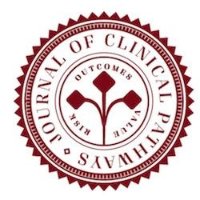The global impact of Precision Medicine Group.
As it happens.
Impact, observations, and insights on the evolving healthcare landscape.
The growing skills gaps in cell and gene therapy have resulted in a bottleneck preventing potentially revolutionary treatments from reaching the patients who need them. Phil Massey and Daniel Foody of Project Farma, part of the Precision ADVANCE collective, weigh in on the effects of the talent gap, and discuss strategies for closing the gap.
Due to their complexity and cost, developers of cell and gene therapies face unique manufacturing hurdles. Determining the right approach to manufacturing is crucial when bringing these advanced therapeutics from clinical to commercialization.
This white paper, based on a recent webinar co-sponsored by Precision for Medicine and Informa Pharma Intelligence, features the unique expertise of Erin Harris (Editor In Chief of Cell & Gene), David Carr (Director, PRECISIONadvisors), Tony Khoury (Executive Vice President, Project Farma), Janet Lambert (CEO, Alliance for Regenerative Medicine), and Alex Karnal (Partner and Managing Director, Deerfield Management).
Calculating viral vector yields is essential to determine how much drug product is needed for a specific gene therapy. It’s a critical analysis for any gene therapy organization looking to scale from preclinical to clinical to commercial. Project Farma’s Tony Khoury, Christian Hermanas and Salome Philip provide an in depth review of a valuable yield calculation tool that can serve as a vital prerequisite of the “make vs buy” analysis.
Although clinical trials in the cell and gene therapy space have skyrocketed, there’s a significant shortfall in the skilled talent required to execute on the exponential potential of cell and gene therapies. Project Farma and Precision ADVANCE leaders Anshul Mangal and John Khoury discuss the biotherapeutic process and manufacturing talent gap, and propose a multipronged approach to addressing the problem through internal innovation and the external influence of academia and industry associations.
A big bottleneck in the evolving field of cell and gene therapy is identifying sites with the capability and capacity to conduct these resource-intensive studies. Gene and cell therapy developers need to create clinical interest to find champions at investigative sites and differentiate their products and clinical trials to keep development moving forward. Precision’s Megan Liles explores strategies for building clinical enthusiasm and selecting the right sites for gene and cell therapy trials.
Access challenges to cell and gene therapy are well documented. Precision’s Christina Poschen and David Carr discuss how some innovative manufacturers are moving away from the role of being purely a researcher and manufacturer and toward involvement at the point of diagnosis through manufacturing and delivery to patient access support in order to address those challenges head on.
PROMISING RESULTS DERIVED FROM THE PIVOTAL PHASE 3 TAPPAS TRIAL OF TRC105 AND VATRIENT® IN PATIENTS WITH ADVANCED ANGIOSARCOMA
HOUSTON, TX – November 14, 2018 – Precision for Medicine and TRACON Pharmaceuticals (NASDAQ:TCON) announced today the presentation of biomarker results from the TAPPAS phase 3 clinical trial that utilized ApoCell’s proprietary circulating tumor cell (CTC) enrichment system, ApoStream. The study, titled Detection of Endoglin-Expressing CTCs in Patients Enrolled in an Adaptive Enrichment Phase 3 Trial of TRC105 and Pazopanib Versus Pazopanib Alone in Patients with Advanced Angiosarcoma (TAPPAS), is the first of its kind to show the detection and capture of CTCs from angiosarcoma cancer patients. Interim study results were presented at the Connective Tissue Oncology Society (CTOS) annual meeting in Rome, Italy. (more…)

In a new editorial for the Journal of Clinical Pathways, Jason Shafrin addresses the appeal of precision benefit design, identifying three key challenges to patient-centered implementation. (more…)
PHE in Health Affairs, Value in Health,and more…
Health Affairs Blog Article on Patient-Centered Formularies
PHE Senior Director Jason Shafrin and Director Mark Linthicum published an article on the importance of accounting for patient heterogeneity in formulary design and the potential use of tools to help payers understand and assess patient-centered value.
—
Health Affairs Blog Article on Components of Value Frameworks
PHE Scientific Advisor Anupam Jena, along with Lauren Neves and Randy Burkholder, published an article in the Health Affairs Blog on April 16, 2018, on the importance of capturing comprehensive components of the value of medical innovations in value frameworks.
—
Value in Health Study on the Impact of Improved Mobility
PHE researchers quantified the impact of improved mobility on using PHE’s proprietary microsimulation THEMIS, finding that improvements in mobility are likely to lead to significant reductions in medical expenditures and nursing home utilization and significant increases in employment.
—
Pharmaceutical Executive Article on the Role of Pharmaceutical Companies in Value Assessment
PHE’s Ross Maclean and Jeroen Jansen published an article in Pharmaceutical Executiveon the role of pharmaceutical companies in conducting transparent and relevant evaluations of value, advocating an open-source approach to conducting cost-effectiveness evaluations.
Transparent and Relevant Evaluations of Value: An Active Role for Pharma